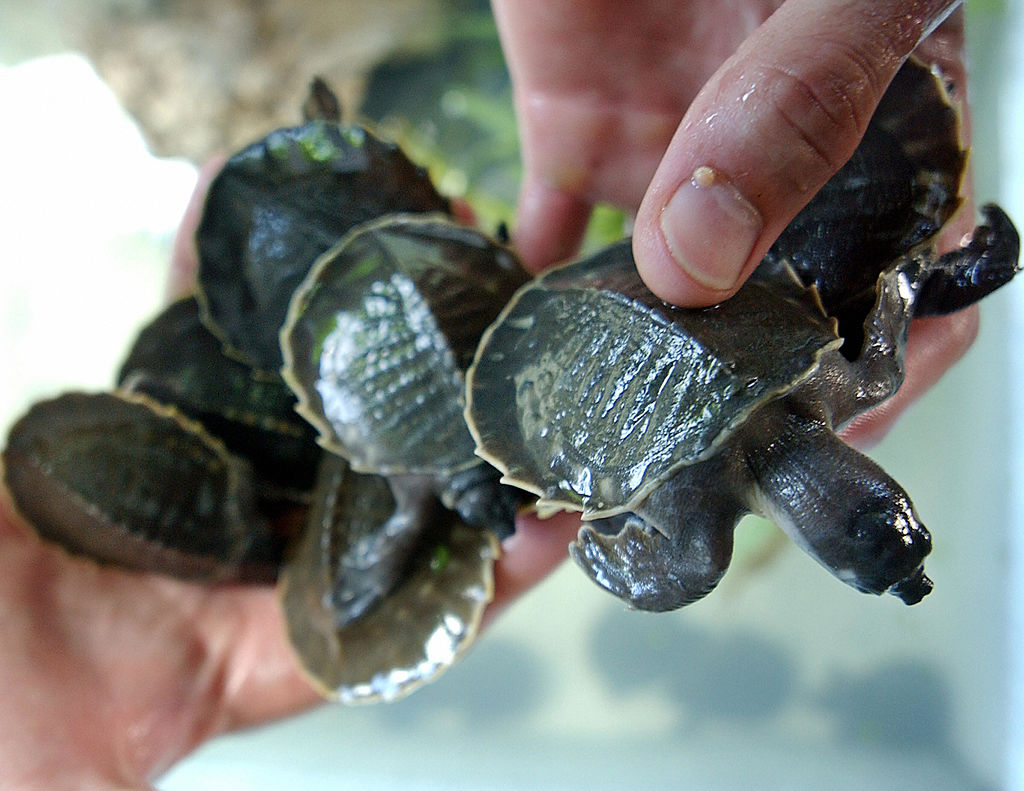
Wildlife criminologists celebrated a rare success in December. A global interagency investigation resulted in money-laundering charges being brought against a Chinese man who allegedly ran a US$2.2 million international illegal trade in endangered turtles from the US to Asia using PayPal, Facebook Messenger and US bank accounts.
Significantly, Kang Juntao was not just the poacher and shipper but also the organiser and financier. He ran the network from China, which made the investigation complex since the US and China don’t have an extradition agreement. In the end, he was extradited from Malaysia to the US and is now in federal custody in New Jersey.
It is a success story for the US government’s fight against global wildlife crimes, says
Meredith Gore, wildlife trafficking researcher at the University of Maryland. Law enforcement agencies investigated social media and bank transfers that Kang made. US court documents show Kang used the digital monetary platform PayPal to transfer money between his network and across currencies in 2017 and 2018.
Kang allegedly arranged for 1,500 turtles to be trapped and captured in the US and shipped to his associates in Hong Kong and China. He used Facebook Messenger to recruit people in five US states, mostly college students from China, to work for him. The animals were then sold to collectors in Asia for thousands of dollars each. The investigation traced the path of turtles from US swamps to Asian markets and included undercover work by agents of the US Fish and Wildlife Service.
The routes used in organised wildlife crime can be informative, as they often show how serious crimes converge. The Global Initiative on Transnational Organized Crime in Geneva is analysing the overlap in routes and convergence of serious crimes and wildlife crime. According to the
US-based non-profit organisation C4ADS, wildlife traffickers tend to exploit the same vulnerabilities in airports that other traffickers do, giving enforcement authorities an opportunity to address their weak points. Traffickers often ‘nest their activities within licit systems of trade and commerce’, C4ADS noted.
C4ADS’s data analysis found that traffickers often use established routes for trade, such as supply lines for hospital and pharmaceutical products. For example, pangolin scales labelled as ‘for scientific purposes’ have been seized in freight in Singapore destined for the UK. The most common paths generally follow popular air traffic routes from supply markets in the southern hemisphere to markets of demand in the northern hemisphere. Trafficking is increasing as the demand for live wildlife and illegal plant and animal products increases among the growing middle class in Asia, as well as in Europe and North America.
The Global Initiative on Transnational Organized Crime is looking into the boom in online wildlife trade during Covid-19 lockdowns. In May, Google reported removing several million advertisements relating to
China’s illegal wildlife trade that ranged from e-commerce platforms to specialised social networks on the dark web that used cryptocurrencies such as Hot Dollars.
Just how wildlife and plant traffickers organise themselves and what motivates people to get involved in these crimes is being studied by the Oxford Martin Programme on the Illegal Wildlife Trade in the UK. Illegal trading of reptiles and orchids is being investigated as part of this work, and trends in Australia and Oceania are being studied.
Although Australia has relatively low levels of illegal wildlife trafficking, with supply and demand muted, the illegal trade is growing and there are lessons to be learned about people’s motivations to become involved. Recent seizures have been linked to some Australian National Rugby League players using animal sales, mainly of reptiles,
to pay for legal fees relating to doping allegations.
Australian reptiles seized by the Department of Agriculture, Water and the Environment in the past few years include softshell turtles, alligator snapping turtles, chameleons, sugar gliders, stingrays and snakehead fish. Ex-rugby league player Martin Kennedy was one of the professional sportsmen found guilty of importing and exporting native animals. Pythons and various prohibited substances were found in his freezer, along with tens of thousands of dollars. Such cases highlight the interplay between drugs and animal trafficking crimes in Australia.
Researcher
Tanya Wyatt from Northumbria University in the UK has shown that wildlife smuggling is often a white-collar crime, but she is cautious about the idea of it being labelled organised crime. Often, it’s more ‘dis-organised’ or ‘corporate crime’ and not traditionally policed as a result. She believes much greater collaboration with regulatory agencies like fraud units, as well as insurance companies and banks, as was done in the Kang case in the US, is needed globally.
Researchers are also looking into orchid smuggling to identify overlooked trade routes.
More than 1 billion orchid plants are traded each year, including for food and medicine,
despite the listing of all species of orchid on the Convention on International Trade in Endangered Species of Wild Fauna and Flora. Orchids make up over 70% of all species listed on the convention. The Oxford Martin Programme has found that Latin America is a region much overlooked by law enforcers when trying to understand the global illegal trade in plants and animals. Other researchers are
calling for better risk management systems for global e-documentation and for more information-sharing between countries.
Methods of investigating the illegal trade of plants and animals need to constantly evolve to keep up with the techniques used to traffic them, but some of the oldest methods of detection haven’t changed. Detector dogs are still some of the most effective investigators, the US Fish and Wildlife Service has found. Its sniffer dogs have been very useful at airports and ports for detecting turtle shipments, for example. Dogs are also highly effective at Kenya’s main airport in Nairobi in catching wildlife and plant shipments. The nose of a detector dog remains one of the most important tools in combating crimes involving wild animals and precious plants.
 Print This Post
Print This Post